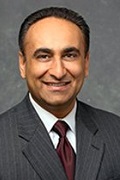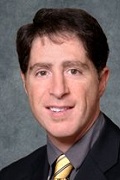Counsel’s relationship with a financial expert on a particular matter can span months or years. Therefore it is important to choose carefully. Experienced counsel will have established their preferred methods and practices for selecting and retaining experts and working with those experts during the progression of the case. These preferred methods and practices vary.
Likewise, experienced financial experts have preferences (and professional requirements) governing their conduct on a particular engagement. Some of these requirements are outlined by regulatory bodies including the Canadian Institute of Chartered Business Valuators. Requirements are also outlined by the Courts. For example, Courts in Ontario have recently instituted a requirement that experts providing opinion evidence submit a declaration to the Court stating that their work is fair, objective and non-partisan.
It is in the interest of both counsel and the expert to maintain the expert’s independence and objectivity in both fact and appearance.
This article outlines some of the practical steps that can be taken to help ensure a successful execution of the financial analysis.
Selection of the Expert
In many cases, clients rely on counsel to recommend an expert. However in some cases the client is involved in the selection process. In either circumstance, counsel will identify one or more potential candidate(s) based on, for example, the following: his or her previous experience with experts in other matters; recommendations from peers; evidence in similar, reported cases.
If counsel and the client determine that they would like to interview several experts as part of the selection process, a Request for Proposals may be sent to a list of candidates.
The request will typically summarize the nature of the case and the opinion being sought. The request will also outline other particulars that should be included in the candidate's proposal, possibly including the names and years of experience of engagement team members, particulars on hourly charge-out rates and billing practices, a summary of the engagement team members' experience in similar cases or within the industry, and possibly a summary of the expert's planned approach (at a very high level) and timeline to complete the analysis.
In our view, it is important that the RFP be sent to a select group of experts, preferably no more than three experts. Sending a broad-based RFP can be counterproductive because the busier experts, who are possibly the most qualified, may not respond if they are competing among a cast of thousands.
Counsel and the client will have their own selection criteria and their own weightings that they ascribe to various selection criteria. In our experience, there is on occasion an over-emphasis placed on the candidate’s previous industry experience. While industry experience can of course be a benefit, the fact of the matter is that Chartered Business Valuators are experts trained in financial analysis and all of the requirements that work entails, including undertaking the industry research necessary to support their opinion.
Further to this point, the financial expert’s industry experience may have been from a file they completed several years ago. While this information may be of use, industry dynamics can change over time and the expert will often be required to research current market dynamics to update his or her knowledge.
In cases where extraordinary industry expertise may be required, one may consider retaining an industry expert to assist the financial expert in his/her analysis. The financial expert will be able to assist counsel in evaluating this potential need. Where an industry expert is retained, it is common for the industry expert to provide his or her own expert report and testimony.
The issue of fees is another common consideration in the selection process - what are the hourly rates of the expert and his/her staff, and what is the likely cost of completing the assignment? Depending on the nature of the case, the expert may be able to provide a relatively reliable fee estimate at the outset. However, in some cases, the assignment has too many variables that can affect fees and a reliable fee estimate is not feasible at the beginning of the assignment.
If it is not feasible to provide a fee estimate at the outset, the expert will often be able to provide a framework for completing components of the analysis (in phases), and in these circumstances, if requested, a fee estimate for the early phases can often be provided.
Where fee estimates are provided, we suggest that one should look beyond the dollar value of the fee estimate to understand how the expert arrived at the estimate, and what the estimate includes (and excludes). In particular, two candidates for a particular engagement may have very different approaches to the assignment. Client and counsel must be cognizant of this fact because fee estimates vary in direct proportion to the experts estimate of the number of hours it will take him/her to complete the assignment.
Instructions/Mandate
When the expert has been selected, the mandate is often summarized in an engagement letter sent by the expert to counsel. It is often the case that the mandate is relatively straightforward and static - e.g. provide an opinion as to the fair market value of the common shares of XYZ Company on XXX date.
In other cases, the mandate is more general in nature - e.g. review available financial records to determine potential areas of loss, and the quantum of that loss. Where the full nature of the required analyses are not known at the outset of the assignment, the expert’s mandate may be adjusted from time to time during the assignment, based on the findings from his/her preliminary analysis.
For example, counsel may choose to abandon potential areas of loss if they are, for example, not recoverable at law (e.g. remote). Alternatively, counsel may request additional analyses on particular issues uncovered by the expert.
In some cases, rather than being provided with an open-ended mandate, the expert may be asked to opine on specific questions posed by counsel. This approach has particular merit where the issues in dispute are clearly defined and easily articulated. In these cases the expert may simply recite each question and his/her response in his/her written opinion report.
When defining the mandate, one of the potential pitfalls is to attempt to stretch the credentials of the expert as new issues are identified in the case. Avoid this temptation and, if necessary, retain an additional consultant with the requisite expertise. In our view, the best way to manage this issue is to be in communication with the expert as the mandate evolves, to ensure everyone is on the same page and to revisit the expert’s suitability for each of the tasks.
Another potential pitfall pertains to the timing for delivery of the expert’s report. The determination of fair market value and quantification of financial loss can be a complex process. In large cases, it is not uncommon for an expert (and his staff) to expend hundreds of hours on due diligence.
Compressed timelines, while often unavoidable, can provide challenges for the expert. In extreme circumstances, the compressed timelines may impede the expert’s ability to provide an unqualified opinion. In these cases, the expert will typically note the limitations in his/her written report.
Communication with the Expert
E-mail is ubiquitous and a preferred method of communication. While lawyers and experts have been quick to adopt e-mail technology, appreciating the potential ramifications of this form of communication has been slower to develop. There are recent examples where e-mail communication has been ordered produced, with serious consequences.
For example, in the recent Ontario case of Bertina Alfano et al v. Christian Piersanti et al, the court determined that "...the content of many of the e-mails exchanged between [the expert] and [the client] reveal that [the expert’s] role as an independent expert was very much secondary to the role of someone who is trying their best for their client to counter to the other side".
One cannot control what another person may include in an e-mail. However, the expert is obligated to remain independent and objective; at a minimum, sending provocative and unnecessary commentary to the expert does nothing to maintain the appearance of independence and objectivity. Our view is that if the expert receives such correspondence, he/she should simply choose to disregard the contents. The expert may also remind the author of the role of the expert in the engagement (independence and objectivity).
Preliminary Findings and Draft Reports
Counsel/client often require assistance with financial analyses even before the litigation has commenced, in order to determine, at a high level, whether a financial loss has been incurred and/or the quantum of that potential loss. When analyses are undertaken prior to the commencement of the lawsuit, the expert’s report should clearly indicate the scope and purpose of the analysis, and should be labelled "Privileged ¨C In Contemplation of Litigation". These simple steps will help preserve privilege over the expert’s preliminary report.
It is common practice to provide a draft of the expert’s report to the client for comment before finalizing the report. Whether or not the draft report is subject to disclosure is a matter that has been debated for years. Opposing counsel may argue that the changes that may be made to a draft report are evidence of undue influence from the client. From our perspective, draft reports are a work in process and feedback from the client is to be expected and encouraged. It is our fundamental position that whether or not the comments received on the draft report are incorporated into the final report is a matter to be determined by the expert at his/her sole discretion, acting in an independent and objective manner.



























